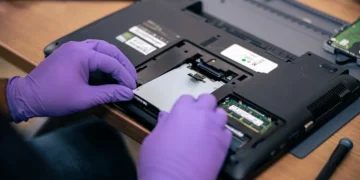Medical detoxification is a critical first step in the journey to recovery from substance addiction. It involves systematically removing harmful substances from the body under medical supervision to ensure safety and comfort. This process is tailored to the specific substance involved, as different drugs uniquely affect the body. We will discover the detoxification approaches for alcohol, opioids, and other substances to understand how these methods vary and why tailored treatment is essential for adequate recovery.
Alcohol Detoxification: Managing Withdrawal Symptoms
Detoxification from alcohol is often the first and most crucial step in addressing alcohol use disorder. The process typically involves a range of medical and supportive measures to manage withdrawal symptoms, which can vary from mild to severe. Symptoms of alcohol withdrawal can include tremors, anxiety, nausea, and, in severe cases, delirium tremens, which is a potentially life-threatening condition characterized by confusion, hallucinations, and severe autonomic instability. Medical detox for alcohol often takes place in a hospital or specialized detox facility where healthcare professionals can monitor and treat these symptoms effectively. Medications such as benzodiazepines may be administered to ease withdrawal symptoms and prevent complications. Supportive care, including hydration and nutritional support, is also essential to help the body recover from the effects of long-term alcohol use.
Opioid Detoxification: Addressing Dependency and Pain Management
Opioid detoxification is a complex process due to the nature of opioid dependence and the severity of withdrawal symptoms. Opioids, which include drugs like heroin, oxycodone, and fentanyl, can cause intense cravings and physical dependence, making detoxification challenging. Withdrawal symptoms can range from muscle aches, insomnia, and diarrhoea to more severe issues like nausea, vomiting, and intense psychological distress. The detox process for opioids often involves the use of medications to ease symptoms and reduce cravings. Medications such as methadone, buprenorphine, and naltrexone can be used to help manage withdrawal and reduce the risk of relapse. In addition to pharmacological interventions, behavioral therapies and support services play a vital role in addressing the psychological aspects of opioid addiction and aiding long-term recovery.
Detoxifying from Stimulants: Managing Different Withdrawal Effects
Stimulants, including drugs such as cocaine, methamphetamine, and prescription stimulants misused, can lead to a unique set of challenges during detoxification. Stimulant withdrawal symptoms often differ significantly from those of depressants or opioids. Symptoms may include fatigue, depression, increased appetite, and intense drug cravings. Unlike opioids and alcohol, stimulants generally do not produce life-threatening withdrawal symptoms, but the psychological and emotional effects can be profound. Detoxification for stimulants often focuses on managing these symptoms and providing psychological support. Medications may be used to address specific symptoms, such as depression or anxiety, while behavioural therapies are crucial in helping individuals cope with cravings and develop strategies for maintaining recovery.
Benzodiazepine Detoxification: Ensuring Safe Withdrawal
Benzodiazepines, a class of medications commonly prescribed for anxiety and insomnia, can lead to dependency when used long-term. Detoxification from benzodiazepines must be approached with caution due to the risk of severe withdrawal symptoms, which can include seizures, severe anxiety, and agitation. The detox process often involves a gradual tapering off of the medication rather than abrupt cessation to minimize the risk of severe withdrawal effects. Medical supervision is critical during benzodiazepine detoxification to monitor for complications and ensure safety. Gradual dose reduction, sometimes combined with alternative medications to ease withdrawal symptoms, is the standard approach. Supportive care and counselling can also help individuals manage the psychological aspects of withdrawal and adjust to life without benzodiazepines.
Detox from Prescription Medications: A Comprehensive Approach
Prescription medications, such as those used for pain management, ADHD, or anxiety, can lead to dependency and require careful management during detoxification. The approach to detox from prescription medications varies based on the type of medication and the extent of dependency. For example, detoxing from prescription painkillers like oxycodone or hydrocodone involves managing opioid-like withdrawal symptoms, while detoxing from medications for ADHD may focus on managing psychological withdrawal effects. A comprehensive approach to detox from prescription medications typically includes medical monitoring, gradual tapering of the medication, and support for managing withdrawal symptoms. Behavioural therapies and counselling play an essential role in addressing the psychological aspects of dependency and helping individuals transition to a life free from medication dependency.
Medical detoxification is a crucial process in overcoming substance dependency, and its approach must be tailored to the specific substance and individual needs. From alcohol and opioids to stimulants and prescription medications, each substance presents unique challenges and requires different strategies for effective detoxification. Ensuring a safe and supportive environment during detox is essential for managing withdrawal symptoms and setting the stage for long-term recovery. By understanding the specific needs of each substance and providing targeted care, individuals can achieve a successful detox and take the first steps toward a healthier, substance-free life.







































